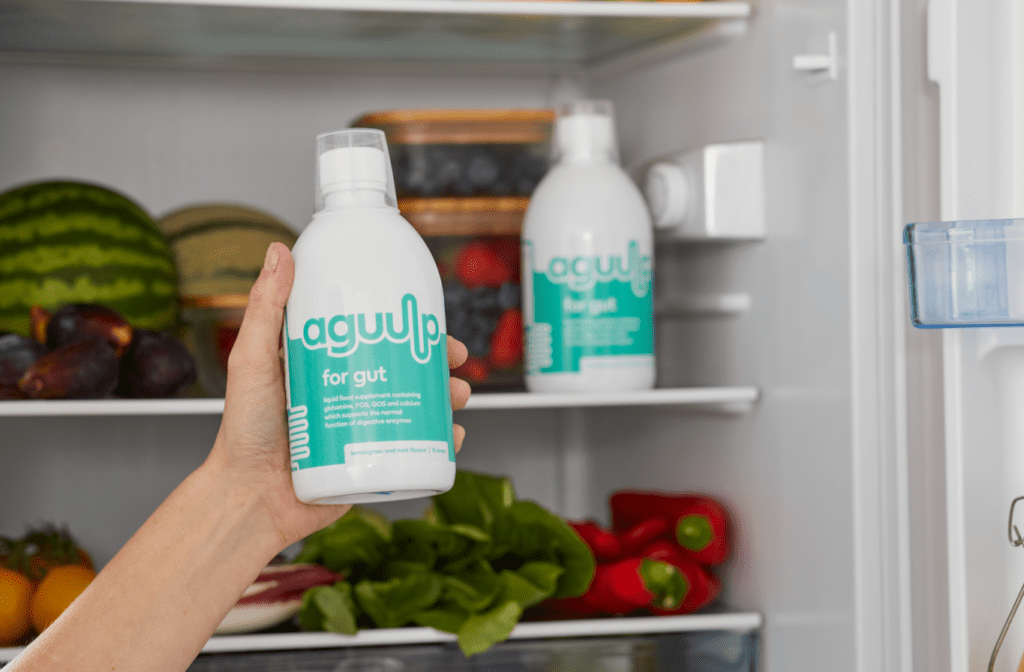How Often Should You Poop to Stay Healthy?

At aguulp, we’re not shy to talk about poop, we all do it (hopefully!), so we should all talk about it right? Questions around poop are very common for us, whether it’s how often should you poop, what it should look like, or what colour it should be – you name it, we get asked it. In this week’s expert series, we’re sharing the most asked question of them all: how many poos a day is healthy and ‘normal’? Read on to learn more about bowel movements and what it means when these visits become more or less frequent.
How many times a day should you poo?
There is no one set answer to ‘how many poos a day is normal?’, as what one person may consider ‘normal’ may completely differ from the next person. This is because we all differ in our bowel habits due to variations in our diets, lifestyles, and other factors. Research has shown, however, that anywhere between three bowel movements per day to three per week may be a good indication of what can be broadly defined as ‘normal’.
Most people find they have a regular bowel pattern, where they will pass the same amount of poo per day and at the same time – however, this isn’t necessarily the case for all people. Some people may find that their bowel movements and patterns may be irregular or unpredictable. Even for those who have regular (and usually) predictable bowel motions, most people will experience changes in their bowel patterns/motions every now and then.
Changes to bowel motions, which may include changes to the frequency, colour, volume and/or consistency of your poop, can occur as a result of many different factors, but most changes will predominantly be caused by what we eat. Other factors that can affect how many poos a day is normal for you can include:
- Medication
- Stress
- Activity levels
- Health status (acute or chronic illness)
- Ageing
- Individual characteristics, including colonic microbiota, according to research
How long can you go without a poo?
As previously mentioned, it is difficult to determine what is and what is not normal when it comes to bowel motions, as this can vary significantly between individuals. What one person may deem as normal may not mean the same thing for the next person. The answer to ‘how long can you go without a poo?’ will depend on what’s usually normal for you, as an individual.
From time to time, it is quite common for changes to our bowel habits to occur – this could be changes to their consistency, colour, frequency and/or volume. Most changes can be attributed to something obvious like a change in the diet, but any change that is not for an obvious or apparent reason, or any change that lasts for a sustained period of time (over a period of 7 days or more) should be investigated.
There are also specific symptoms that may indicate the need to seek urgent medical attention. These symptoms may include, but are not limited to:
- Blood in stool (particularly dark red or black in appearance and/or consistency of coffee grounds)
- Lack of bowel motion for 7 days or more
- Severe abdominal pain
- Weight loss accompanied by other gastro-intestinal symptoms
- Narrow stool (if not normal and is a new change)
If you experience any of these, speak to your GP immediately.
How does pooping frequency impact our gut health?
Reduced or excessive bowel movements can be detrimental to the health of the individual. Gastrointestinal functioning is essential for the digestion of nutrients and the elimination of waste and toxins from the body. When our gastrointestinal system is not working efficiently, this can cause a whole host of unpleasant and uncomfortable digestive symptoms and has been associated with more severe health problems.
A common gastrointestinal complication as a result of not passing enough poop can include constipation, which if not addressed, may lead to faecal impaction (where the stool becomes too hard and difficult to pass). If excess stool accumulates in the intestines, the pressure on the intestines can cause perforations or tears in the intestinal wall and can have serious consequences. According to research, constipation is also associated with an increased risk of cardiovascular disorders, due to increased oxidative stress and inflammation in the body that affects the heart. This is not to say that those with constipation will inevitably have heart problems, but according to research the risk is increased. Constipation has also been associated with other progressive diseases, including Parkinson’s Disease, according to studies.
On the other hand, when too much poop is passed, this can affect how much or how effectively the body absorbs vital nutrients and electrolytes. Not only can this cause the body to become dehydrated, which can have severe consequences if not addressed, but over time this can lead to nutritional deficiencies, weight loss and the onset of health problems and disease progression.
How gut health supplements affect how your poop
aguulp for biome is a high strength probiotic product containing a synergistic blend of both pre and probiotics which has been specifically formulated to support the health of the gut microbiome. Studies show that probiotic strains such as Bifidobacteria and Lactobacilli can help improve and maintain healthy bowel function and regularity. These types of healthy bacteria help to produce short chain fatty acids (SCFAs) such as acetate, propionate, and butyrate, which are responsible for overall gut health and bowel regularity. They have been shown to help stimulate peristalsis (muscular contractions and relaxations that propel food through the GI tract) and reduce colonic transit time. Our daily synbiotic also have included additional and specific strains of lactobacillus such as L. rhamnosus and L.plantarum which have also been shown to help increase the production of SCFAs and be effective in managing functional constipation disorders.
aguulp for biome also contains fibre in the form of inulin, FOS (Fructo-oligosaccharides) and XOS (Xylooligosaccharides). These types of prebiotic fibres act as a food source to the probiotics helping to stimulate the activity of beneficial colonic bacteria that can help encourage and maintain healthy bowel movements. Studies have shown that synbiotics made up of FOS combined with probiotics can help to improve stool frequency, consistency and some other symptoms related to constipation.
aguulp for gut
aguulp for gut product also provides prebiotics fibres in the form of inulin, FOS and XOS that have been shown in studies to help encourage the growth of healthy gut bacteria, which in turn help to regulate and maintain healthy bowel movements. These prebiotic fibres are also combined with an array of other ingredients which have also been shown to support and help maintain healthy digestive function, for example:
- Collagen: shown to help reduce bloating and improve frequency of bowel movements. It is also reported to help move food through the GI tract more smoothly, assisting in the digestion process.
- L-glutamine: an amino acid that has been shown to play an important role in the maintenance and health of the digestive tract. Studies have also shown that L glutamine helps improve stool frequency and consistency.
- Zinc: research has shown that zinc plays an important role in digestive health. It is believed to have a protective effect in a variety of gastrointestinal pathologies such as diarrhoea and other GI ailments. Studies have shown it is useful in the reduction of diarrhoea and improvements in stool consistency.
Keep an eye on how often you poop, to work out how many poos a day is normal for you. If you notice any changes or are worried about any of your bowel movements, always speak to your GP for advice. Shop our full range of gut health supplements today.
Speak to our experts
If you have any questions regarding IBS, our gut supplements, gut health, or even general health, send us a message on [email protected] and one of our in-house experts will be more than happy to help. We also have our very own Aguulp Gut Support Facebook group, where you can discuss gut, IBS, or general health problems freely without judgement. You can also sign up to our Aguulp gut health newsletter.
References
- Mitsuhashi S, Ballou S, Jiang ZG, Hirsch W, Nee J, Iturrino J, Cheng V, Lembo A. Characterizing Normal Bowel Frequency and Consistency in a Representative Sample of Adults in the United States (NHANES). Am J Gastroenterol. 2018 Jan;113(1):115-123. doi: 10.1038/ajg.2017.213. Epub 2017 Aug 1. PMID: 28762379.
- https://muschealth.org/medical-services/geriatrics-and-aging/healthy-aging/bowel-habits
- https://academic.oup.com/aje/article/174/5/546/117341
- https://my.clevelandclinic.org/health/articles/9663-stool-changes-and-what-they-mean
- Vermorken AJ, Andrès E and Cui Y: Bowel movement frequency, oxidative stress and disease prevention (Review). Mol Clin Oncol 5: 339-342, 2016
- Choi CH, Chang SK. Alteration of gut microbiota and efficacy of probiotics in functional constipation. J Neurogastroenterol Motil. 2015 Jan 31;21(1):4-7. doi: 10.5056/jnm14142. PMID: 25611063; PMCID: PMC4288092.
- Zhang C, Zhang Y, Ma K, Wang G, Tang M, Wang R, Xia Z, Xu Z, Sun M, Bao X, Gui H, Wang H. Lactobacillus plantarum Lp3a improves functional constipation: evidence from a human randomized clinical trial and animal model. Ann Transl Med. 2022 Mar;10(6):316. doi: 10.21037/atm-22-458. PMID: 35434041; PMCID: PMC9011319.
- LeBlanc JG, Chain F, Martín R, Bermúdez-Humarán LG, Courau S, Langella P. Beneficial effects on host energy metabolism of short-chain fatty acids and vitamins produced by commensal and probiotic bacteria. Microb Cell Fact. 2017 May 8;16(1):79. doi: 10.1186/s12934-017-0691-z. PMID: 28482838; PMCID: PMC5423028.
- Sabater-Molina M, Larqué E, Torrella F, Zamora S. Dietary fructooligosaccharides and potential benefits on health. J Physiol Biochem. 2009 Sep;65(3):315-28. doi: 10.1007/BF03180584. PMID: 20119826.
- Lovino P, Chiarioni G, Bilancio G, Cirillo M, Mekjavic IB, Pisot R, Ciacci C. New onset of constipation during long-term physical inactivity: a proof-of-concept study on the immobility-induced bowel changes. PLoS One. 2013 Aug 20;8(8):e72608. doi: 10.1371/journal.pone.0072608. PMID: 23977327; PMCID: PMC3748072.
- Yu T, Zheng YP, Tan JC, Xiong WJ, Wang Y, Lin L. Effects of Prebiotics and Synbiotics on Functional Constipation. Am J Med Sci. 2017 Mar;353(3):282-292. doi: 10.1016/j.amjms.2016.09.014. Epub 2016 Oct 4. PMID: 28262216.
- Abrahams M, O’Grady R, Prawitt J. Effect of a Daily Collagen Peptide Supplement on Digestive Symptoms in Healthy Women: 2-Phase Mixed Methods Study. JMIR Form Res. 2022 May 31;6(5):e36339. doi: 10.2196/36339. PMID: 35639457; PMCID: PMC9198822.
- Zhou Q, Verne ML, Fields JZ, Lefante JJ, Basra S, Salameh H, Verne GN. Randomised placebo-controlled trial of dietary glutamine supplements for postinfectious irritable bowel syndrome. Gut. 2019 Jun;68(6):996-1002. doi: 10.1136/gutjnl-2017-315136. Epub 2018 Aug 14. PMID: 30108163; PMCID: PMC9549483.
- Laghari GS, Hussain Z, Shahzad H. Effect of Zinc Supplementation on the Frequency and Consistency of Stool in Children with Acute Diarrhea. Cureus. 2019 Mar 11;11(3):e4217. doi: 10.7759/cureus.4217. PMID: 31106100; PMCID: PMC6506273.


